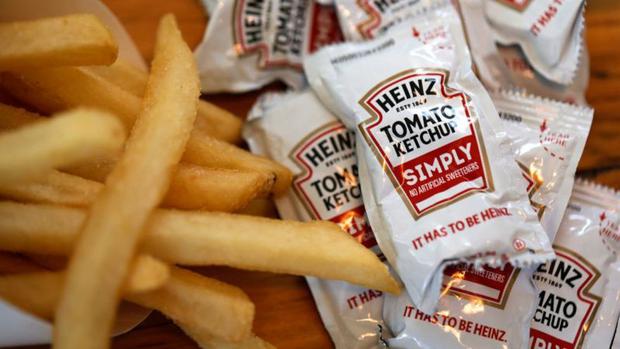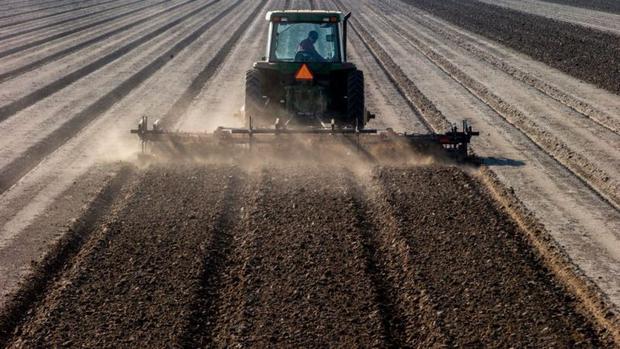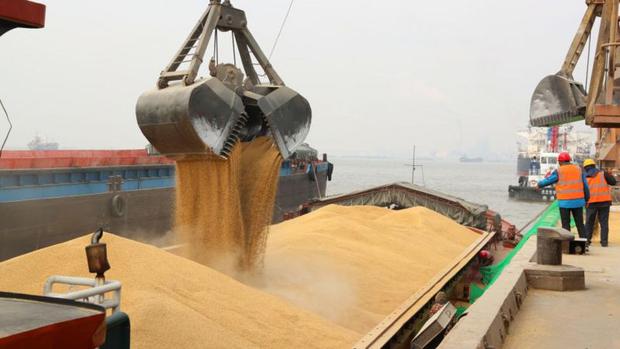People will have to get used to rising food prices.
This is what Miguel Patricio, CEO of the multinational, told the BBC Kraft Heinz.
Patricio announced that the food giant is raising prices in several countries.
Unlike in previous years, he emphasized, Inflation is now “generalized”.
The cost of ingredients such as grains and oils has pushed global food prices to a 10-year high, according to the Food and Agriculture Organization of the United Nations.
Kraft Heinz raised the prices of more than half of its products in United State, his local market, and Patricio admitted that this is also happening in other places.
“We will raise prices, when necessary, around the world,” he said.
Various factors
During the pandemic, many countries have seen a decline in the production of raw materials, from crops to vegetable oils. Measures to control the virus, as well as disease, have limited production and distribution.
With economies restarting, The supply of these products could not keep up with the yield in demand, which led to higher prices.
Higher wages and energy prices have also increased the cost burden on manufacturers.

This wide range of factors contributes to the increase in food prices, Patricio says.
There is a shortage of truck drivers in the UK. In the United States, logistics costs have also increased significantly and there is labor shortages in certain areas of the economy, he says.
Patricio says consumers will have to get used to higher food prices given that the world’s population is increasing, while the amount of farmland is not.
Although in the long run, “there is a lot of technology coming that will improve farmers’ efficiency.”
Weight on clients
But Patricio said not all cost increases should be passed on to consumers. Companies will have to absorb part of the increase.
“I think it’s up to us and the industry and other companies to try and reduce these price increases,” he said.

But major food producers such as Kraft Heinz, Nestlé and PepsiCo “will likely have to transfer that cost to consumers,” according to Kona Hack, head of research at ED&F Man Productions.
“Whether it’s corn, sugar, coffee, soybeans, or palm oil, all of these essential food products have increased,” he said.
“Weak harvests in Brazil, which is one of the world’s largest agricultural exporters, drought in Russia, declining agriculture in the United States and lower storage in China, combined with more expensive fertilizers and energy and shipping costs, are factors that have driven up prices,” he said.
confirmed it All food producers will be affected, so everyone will raise prices similarly: “Everyone will, which means they probably won’t lose customers.”
This week, PespsiCo warned that it is also facing rising costs in everything from transportation to raw materials, and said prices are likely to rise in early 2022.
Increase in sales
However, in addition to driving up costs, the pandemic has helped boost sales of some Kraft Heinz brands, Patricio said, because staying home means “people are cooking a lot more than before.”
Total sales increased 1.6% to $13 billion in the first half of 2021.
Irene Lash of investment firm Morningstar described the increase as “very impressive relative to the same pre-pandemic period in 2019”, although it represents a slight slowdown.

The company is also undergoing extensive restructuring under Patricio’s management, including the sale of some old brands and the acquisition of some new ones.
According to Lash, this restructuring was to “narrow its focus and increase its spending on innovation and marketing,” which will support future sales.
less plastic
Patricio also said the company is also spending significant amounts of money developing new packaging to meet its goals of reducing plastic waste.
Most of the 650 million bottles of ketchup that the company sells each year are made of plastic, for example. But Patricio said the company is “encouraging” customers to buy glass bottles even though they are less convenient.
“We work hard, not just in plastic bottles, but in all areas of our brand that contains plastic,” he said.
Environmental activists would like to see a drop in the use of ketchup bags.

However, after facing a shortage of bags during the pandemic as consumers bought more prepared foods at restaurants, Kraft Heinz invested in expanding bag production by 30%.
“Thank God we did, because we don’t have this problem anymore [de escasez]’, says Patricio. But he stresses that the company is working on a solution to ‘reduce the amount of plastic they use.’
___________________________________
Recommended video

It might interest you

“Beeraholic. Friend of animals everywhere. Evil web scholar. Zombie maven.”
